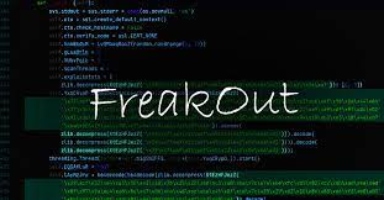Press Release
FreakOut malware infects VMware systems that are weak.

An updated Python-based virus that targets Windows and Linux systems can now obtain access to VMware vCenter servers that are accessible to the Internet and are not patched against a remote code execution vulnerability.
The malware, known as FreakOut by CheckPoint researchers in January (also known as Necro and N3Cr0m0rPh), is an obscured Python script built with a polymorphic engine and a user-mode rootkit that conceals dangerous files placed on infected systems.
FreakOut spreads by taking advantage of a variety of OS and app flaws and brute-forcing passwords over SSH, adding the infected devices to an IRC botnet that is under the control of its creators.
Infected systems can be backdoored, network traffic can be sniffed and exfiltrated, and XMRig miners can be used to mine Monero cryptocurrency thanks to the malware’s main feature.
updated malware with fresh exploits
FreakOut’s developers have been hard at work enhancing the malware’s spreading capabilities since early May, when the botnet’s activity has abruptly spiked, Cisco Talos researchers said in a report released today.
Vanja Svajcer, a security researcher at Cisco Talos, said that although the bot was first identified this year, recent activity “shows numerous changes to the bot, ranging from different command and control (C2) communications and the addition of new exploits for spreading, most notably vulnerabilities in VMWare vSphere, SCO OpenServer, Vesta Control Panel and SMB-based exploits that were not present in the earlier iterations of the code.”
FreakOut bots look for new systems to attack by generating network ranges at random or by responding to commands from their masters delivered via IRC via the command-and-control server.
The bot will attempt to log in using one of the built-in exploits or a hardcoded set of SSH credentials for each IP address in the scan list.
The most recent FreakOut versions include more than twice as many built-in exploits, whereas earlier versions could only exploit vulnerable versions of Liferay, Laravel, WebLogic, TerraMaster, and Zend Framework (Laminas Project) web apps.
The following newly added malware variant exploits were discovered by Cisco Talos in May:
VestaCP — ‘v sftp licence’ Command Injection in VestaCP 0.9.8
‘cgi-bin/kerbynet’ in ZeroShell 3.9.0 Injection of remote root commands
The ‘outputform’ Command Injection Genexis in SCO Openserver 5.0.7 VULNERABILITY IN PLATINUM 4410 2.1 P4410-V2-1.28 FOR REMOTE COMMAND EXECUTION
Remote Command Execution vulnerability in OTRS 6.0.1
Remote Command Execution vulnerability in VMware vCenter
An unknown app’s Nrdh.php remote code execution vulnerability
Python versions of the EternalBlue and EternalRomance attacks (CVE-2017-0144 and CVE-2017-0147, respectively)
Numerous VMware servers are vulnerable to assaults.
The vCenter plugin for vRealize Operations (vROps) contains the VMware vCenter vulnerability (CVE-2021-21972), which is particularly intriguing because it affects all default vCenter Server installations.
Shodan and BinaryEdge have revealed that thousands of unpatched vCenter servers are currently reachable over the Internet.
After security researchers released a proof-of-concept (PoC) exploit code, attackers had previously bulk scanned for vulnerable Internet-exposed vCenter servers.
In February, CVE-2021-21972 exploits were also added to the toolkit of Russian Foreign Intelligence Service (SVR) state hackers, who are now actively using them in ongoing activities.
Ransomware attacks aimed at enterprise networks have also in the past taken advantage of VMware vulnerabilities. FreakOut operators have also been observed releasing a unique ransomware strain, indicating that they are actively experimenting with new harmful payloads, Cisco Talos reported.
Several ransomware groups, including RansomExx, Babuk Locker, and Darkside, have in the past encrypted virtual hard drives used as centralised enterprise storage space using VMware ESXi pre-auth RCE attacks.
“The Necro Python bot depicts an actor who updates the bot with the most recent remote command execution exploits for various online apps. This raises the likelihood of it spreading and contaminating systems, “said Svajcer.
Users must frequently update all apps, not only operating systems, with the most recent security patches.
Press Release
Russian processor manufacturers are prohibited from using ARM because of UK sanctions.

On Wednesday, the UK government expanded its list of sanctioned Russian organisations by 63. The two most significant chip manufacturers in Russia, Baikal Electronics and MCST (Moscow Center of SPARC Technologies), are among them.
Since the licensee, Arm Ltd., is situated in Cambridge, England, and must abide by the penalties, the two sanctioned firms will now be denied access to the ARM architecture.
contacting inactive entities
The UK government provided the following justification for the restrictive measures put in place against Baikal and MCST:
The clause’s goal is to persuade Russia to stop acting in a way that threatens Ukraine’s territorial integrity, sovereignty, or independence or that destabilises Ukraine.
The two companies are important to Russia’s ambitions to achieve technical independence since they are anticipated to step up and fill the gaps left by the absence of processors built by Western chip manufacturers like Intel and AMD.
The two currently available most cutting-edge processors are:
Eight ARM Cortex A57 cores running at 1.5 GHz and an ARM Mali-T628 GPU running at 750 MHz make up the 35 Watt Baikal BE-M1000 (28nm) processor.
MCST Elbrus-16S (28nm), a 16-core processor clocked at 2.0 GHz, is capable of 1.5 TFLOP calculations, which is a tenth of what an Xbox Series X can do. Baikal BE-S1000 (16nm), a 120 Watt processor featuring 48 ARM cores clocked at 2.0 GHz, MCST Elbrus-8C (28nm), a 70 Watt processor featuring eight cores clocked at 1.3 GHz,
Russian businesses and organisations that evaluated these chips in demanding applications claim that they fall short of industry standards and are even unacceptably priced.
Although the performance of these processors and the far poorer mid-tier and low-tier chips with the Baikal and MCST stickers is not very spectacular, they could keep some crucial components of the Russian IT sector operating amid shortages.
In reality, MCST recently bragged that it was “rushing to the rescue” of vital Russian enterprises and organisations, successfully filling the void left in the domestic market.
sanctions’ effects
Given that Russia has previously demonstrated its willingness to relax licencing requirements in order to mitigate the consequences of Western-imposed limitations, it is simple to discount the application and impact of the UK’s sanctions.
It is crucial to keep in mind that the Baikal and MCST processors are produced in foreign foundries, such as those owned by Samsung and TSMC, and that neither of them would violate Arm’s licencing policies or international law to serve Russian objectives.
The only option is to bring the production home and break the law as Baikal, which has a legitimate licence to produce at 16nm, only has a design licence for its next products.
The fact that chip fabrication in Russia can only now be done at the 90nm node level presents yet another significant issue. That was the same technology NVIDIA employed in 2006 for its GeForce 7000-series GPUs.
To combat this in April 2022, the Russian government has already approved an investment of 3.19 trillion rubles (38.2 billion USD), although increasing domestic production will take many years. In the best-case scenarios, 28nm circuits will be able to be produced by Russian foundries by 2030.
Press Release
PE firm Insight Allies spends $290M for a bulk risk in CivicPlus, which provides software and also various other innovation to greater than 4,000 municipal governments (AJ Dome/Manhattan Mercury).

PE firm Insight Partners invests $290M for a majority stake in CivicPlus, which provides software and other technology to more than 4,000 municipal governments (AJ Dome/Manhattan Mercury)
AJ Dome / Manhattan Mercury:
PE firm Insight Partners invests $290M for a majority stake in CivicPlus, which provides software and other technology to more than 4,000 municipal governments — A Manhattan software business owner says a multimillion-dollar investment into the company will not change the company’s makeup.
Press Release
EXAMINING THE LINKS BETWEEN THE RATIONALIST COMMUNITY, WITH SLATE STAR CODEX BLOG AS ITS EPICENTER, AND INFLUENTIAL LEADERS IN TECH, INCLUDING OPENAI’S FOUNDERS (CADE METZ/NEW YORK TIMES)

Examining the links between the Rationalist community, with Slate Star Codex blog as its epicenter, and influential leaders in tech, including OpenAI’s founders — Slate Star Codex was a window into the psyche of many tech leaders building our collective future. Then it disappeared.
-

 Apps1 year ago
Apps1 year agoWhy is Everyone Talking About Hindi Keyboards?
-

 Social Media1 year ago
Social Media1 year agoWho is Rouba Saadeh?
-

 Apps1 year ago
Apps1 year agoThings you need to know about Marathi keyboard today
-

 Apps1 year ago
Apps1 year agoStuck with Your default Bangla keyboard? Isn’t it time for a change?
-

 Games1 year ago
Games1 year agoTop 7 Popular Puzzle and Card Games for Relaxing Your Brain on Mobile, Featuring Solitaire
-

 Social Media1 year ago
Social Media1 year agoMati Marroni Instagram Wiki (Model’s Age, Net Worth, Body Measurements, Marriage)
-

 Entertainment1 year ago
Entertainment1 year ago12 Online Streaming Sites that Serve as Best Alternatives to CouchTuner
-

 Entertainment1 year ago
Entertainment1 year agoMovierulz Website: Movierulzz 2021 Latest Movies on Movierulz.com
